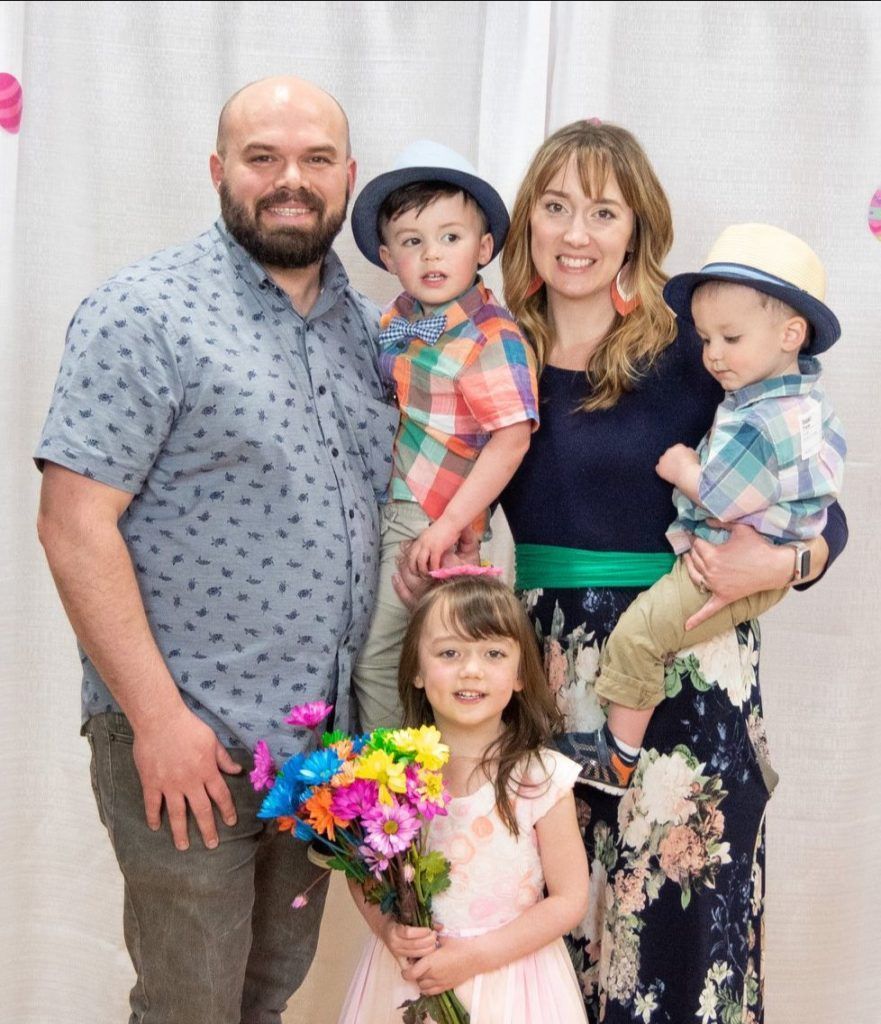
Raised in Boise, Idaho, Robert is an avid Boise State and Boston sports fan, he loves film, design, coffee and home-brewing and is currently looking for opportunities to play old-man soccer. He runs a creative consulting firm called solidcreative.media.
In August of 2016, the Fraziers moved back to Boise to plant a church- Redemption Boise.
…
So your church is in Boise, Idaho. Tell us a little about Boise!
Boise is a unique city for many reasons. It’s growing like crazy, it’s beautiful and so close to great outdoor recreation, and it’s one of the least religious cities in the country. It’s also where I grew up. When we sensed God calling us to plant, we were open to anywhere but excited to invest our lives in a city that we love so much.
Talk to us about when you starting feeling the pull towards church planting, and the process/discussions that followed.
I was being recruited by a large church to be there executive pastor. It wasn’t a good fit with my giftings and passions, but at the end of a long phone call the senior pastor told me that I was built like a church planter and if I wanted to do that he would support us. He didn’t end up supporting our church plant, but he did call out this apostolic gifting in me that I didn’t see. We started to process with the church we were leading in, and they reluctantly agreed that God was calling us to plant, over the course of about a year of discernment. We moved to Boise and a year later with a great launch team we started Redemption Hill.
What are the distinctives you are hoping to embed in the DNA of this new church?
My ministry from the beginning was shaped by the missional conversations of the early aughts. I spent 10 years as a missionary to teenagers, so outreach was the driving force behind the church plant. We wanted to be hyper-local, missional, evangelistic, built to make apprentices of Jesus and multiply disciple-making communities. Some of that is happening, other parts are still aspirational.
As you think about what you’ve been able to do so far in getting this church plant off the ground, what are some things you have done/tried that have worked well?
We’ve had some early success connecting with families in our community through movie nights, a sports and arts camp and a Christmas indoor fair. Our community groups and discipleship classes have been vital parts of building the community…and we instituted a short coffee break before the sermon that has really been a surprisingly great part of our community life.
What hasn’t worked so well? What have you had to rethink/reimagine/rework?
We have a million little kids, so anything with just adults, classes, formation, missional communities has been difficult to move quickly. In our community group we have 15 kids and like 17 adults. And almost all of the kids are under 8. We haven’t solved that Rubik’s cube, but we are starting to lean into the rhythms of parenting rather than fighting against them.
What is one failure you experienced and what did you learn from it?
The first year we were awful at new people integrating with the community. We had a bunch of people checking out the church and almost none of them stayed. Some simple processes and culture shifts around hospitality have been a huge part of turning that around.
What is something you’ve been hearing from or learning from God in this last season of planting?
My job is to equip the saints, not do the work for them. I’ve been trying to set aside more time for developing people rather than doing “ministry.”
What do you dream/hope/pray this new church looks like in five years?
That we have planted 2 churches and are regularly developing great leaders to send as missionaries into their neighborhoods. I hope 100 people can say: my life was transformed by good news I heard and experienced at Redemption Hill.







